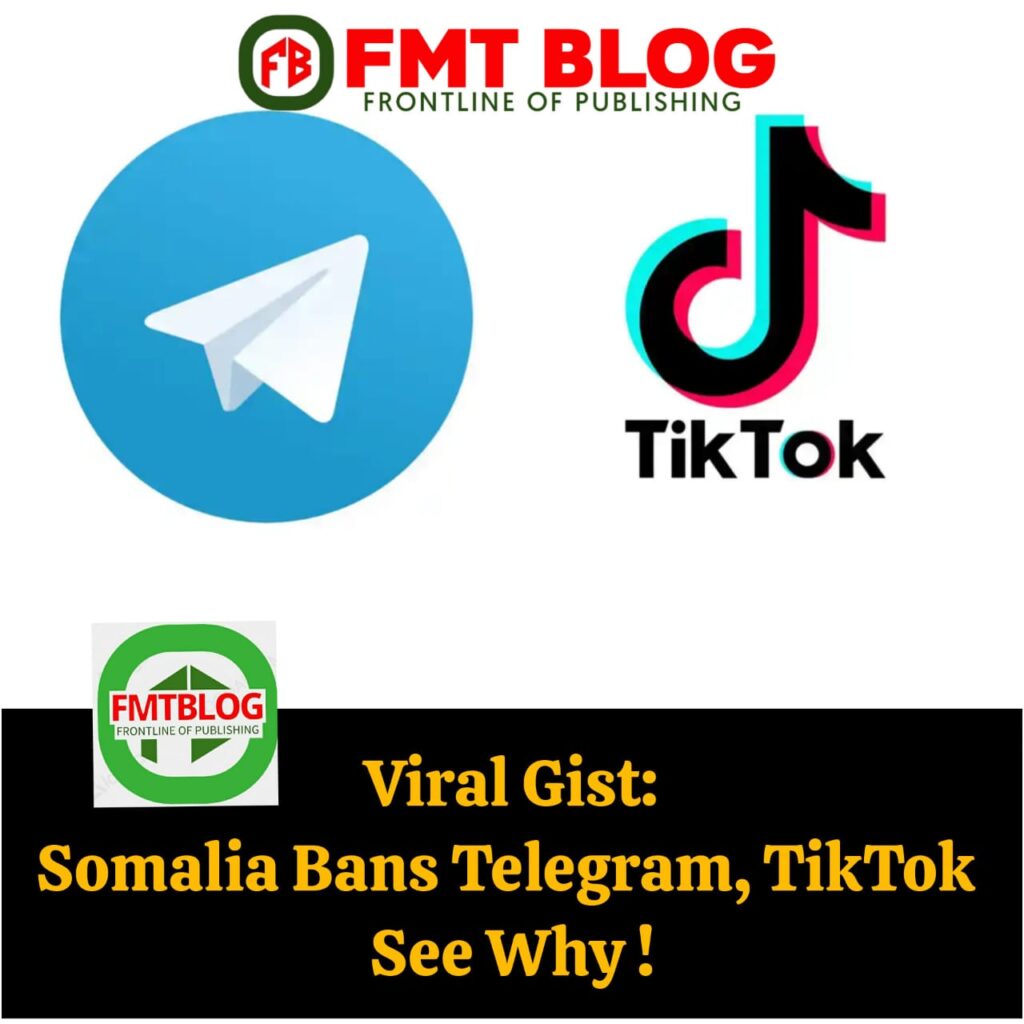Somali Telegram: Connecting Communities And Sharing Information Across Distances
Have you ever wondered how Somali communities stay in touch, share news, or just chat across different places? It's a big question, especially with so many people spread out, and so, finding ways to keep connected is really important. A lot of folks, you know, look for digital spaces that feel like home, where they can find others who get their culture and language. This is where Telegram, a popular messaging app, steps in for many Somali speakers and groups around the world.
This platform, it's almost like a digital gathering spot, allowing people to form groups and channels for all sorts of things. From getting the latest updates to just sharing daily life, Telegram has become a very common tool. We'll look at how it helps people connect, share, and even get news, making it a key part of how many Somali individuals stay linked up, and that's pretty neat, actually.
Today, we're going to explore what makes "somali telegram" such a significant phrase. We'll talk about how people use it, what kinds of groups you might find, and why it's a go-to for many. It's a fascinating way to see how technology helps keep a community strong, even when miles separate them, and you know, that's a pretty powerful thing.
Table of Contents
- Understanding Somali Telegram: What It Is
- Why Somali Communities Choose Telegram
- Finding Your Community on Telegram
- Staying Informed: News and Updates
- Language and Accessibility: Somali Interface
- Tips for a Positive Telegram Experience
- Looking Ahead: The Future of Somali Telegram
- Frequently Asked Questions
Understanding Somali Telegram: What It Is
When people talk about "somali telegram," they're usually referring to the many different channels and groups on the Telegram app that are specifically for Somali speakers. This isn't just one big group, but rather a whole collection of digital spaces. You know, it's a place where people with shared interests and knowledge can come together, and it's quite diverse. Some groups might be about local news, others about cultural discussions, or even just general chat for friends and family.
It's like a digital meeting place that has grown organically. People create these groups to connect, share ideas, and keep up with what's happening. The flexibility of Telegram, you see, allows for both private chats and very large public channels, which makes it suitable for many different community needs. It's a pretty simple tool, but it really helps people stay in touch, which is important.
This network of channels and groups, it's something that has really grown, especially over the past few years. It shows how people are using technology to build and maintain connections, even across long distances. So, when we say "somali telegram," we're talking about this whole ecosystem of communication that's built by and for the Somali community, and that's actually quite remarkable.
- %D8%B3%D9%83%D8%B3 %D9%85%D9%8A%D8%B1%D9%86%D8%A7
- Frankie Katafias
- Teach Me First Honey
- Camilla Araujo Leaked Video
Think of it this way: a group that started small might, in time, grow to have many thousands of members. This growth often happens because people find value in the information shared or the connections made. It's a clear sign that these digital gathering spots fill a real need for communication and belonging. So, it's not just about the app; it's about the vibrant community that forms around it.
The phrase "somali telegram" itself points to a specific use case of a global platform. It highlights how a general tool can be adapted and adopted by a particular linguistic or cultural group. This kind of adaptation is common in the digital world, but it's particularly noticeable here because of the strong community aspect. It's more than just messaging; it's about building and keeping cultural ties alive, which is pretty significant.
These channels and groups, they come in all shapes and sizes, you know. Some are open for anyone to join, while others might be more private, perhaps for family or close friends. This variety means that almost anyone can find a space that suits their needs, whether they want to follow breaking news or just share everyday stories. It's a very adaptable system, which is a big part of its appeal, apparently.
The core idea is to create a sense of shared space, even when people are physically far apart. It's about maintaining cultural identity and providing a platform for expression in one's native language. This makes "somali telegram" a really vital part of modern communication for many, offering a sense of connection that might otherwise be hard to achieve. It's quite a powerful example of how digital tools bring people closer, really.
Why Somali Communities Choose Telegram
There are a few good reasons why Telegram has become such a popular choice for Somali communities. For one thing, it's very easy to use, and that's a big plus. Setting up groups or channels doesn't take much effort, so people can quickly create their own little corners of the internet. Also, it allows for large numbers of people in a single group, which is great for bigger community discussions or announcements.
Another thing is the way Telegram handles media. You can send photos, videos, and documents pretty easily, and that's something people really appreciate. This means sharing news clips, family videos, or important documents becomes a straightforward task. It's a very practical aspect that makes it stand out for many users, and that, you know, makes a difference.
Furthermore, Telegram offers a level of privacy that some users find appealing. The ability to create secret chats and the option for self-destructing messages give people a sense of security. For communities that might be spread out and need a reliable, private way to communicate, these features can be quite important. It's basically about having a tool that feels safe and works well for their particular needs, and that's a common reason people stick with it.
Beyond these features, the low data usage of Telegram is also a big draw for many. In places where internet access might be limited or costly, an app that uses less data is a huge advantage. This makes it more accessible to a wider range of people, ensuring that more community members can participate without worrying too much about their mobile data plans. So, it's a very practical choice for many, actually.
The speed of message delivery is another factor. Telegram is known for being quite fast, which is important for real-time conversations and getting news updates quickly. When you're trying to stay on top of events or just have a quick chat, a speedy app makes a big difference. This reliability helps keep conversations flowing and information moving efficiently, which is pretty useful.
Also, the fact that Telegram is available on many different devices – phones, tablets, computers – means people can access their groups and chats from wherever they are. This cross-device compatibility makes it very convenient for users who might switch between devices throughout their day. It's about making communication seamless, which is a big plus for busy individuals, you know.
The ability to create and manage channels with a large number of subscribers is also a key feature. This is particularly useful for official organizations or community leaders who want to broadcast messages to a very wide audience. It allows for one-way communication to many people, which is perfect for announcements or news dissemination. This functionality, it's quite powerful for community outreach, in a way.
Finding Your Community on Telegram
If you're looking to connect with Somali communities on Telegram, there are a few ways to go about it. Often, people find these groups through word of mouth, meaning friends or family share links. It's kind of like how you'd hear about a new local gathering spot, but online. You might get an invite link from someone you know, which is a common way to join these digital spaces.
Sometimes, too, people will search within Telegram itself. While it might not always show every single group, you can often find public channels by typing in relevant keywords, like "Somali news" or "Somali community." It's a bit like searching for a topic on a website, you know, you type in what you're looking for and see what comes up. This can help you discover new connections and sources of information.
It's also worth noting that many community groups might start small and then grow as more people join. So, if you're looking for something specific, it might take a little patience to find the right fit. The goal is often to connect with people who share your interests, and so, finding a group where you feel comfortable is key. It's about building those connections, really.
Another way to find groups is through social media platforms or community forums. Sometimes, people will post links to their Telegram groups on Facebook, Twitter, or dedicated Somali online forums. This can be a good starting point if you're not getting direct invites. It's about casting a wider net to see what connections are out there, and that's a pretty smart approach.
When you join a new group, it's a good idea to take a moment to read any rules or guidelines they might have. Most well-managed groups will have some basic expectations for members, which helps keep the conversation friendly and productive. This little step can help you fit in better and avoid any misunderstandings, which is quite helpful, actually.
Remember that the landscape of groups and channels can change. A group

Find Somali VIP Telegram Channels: Access & Info

Somali Wasmo Telegram: Channels & Groups You Need To Know!

Somali Telegram Channels: Connect, Share, Thrive In 2025